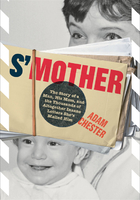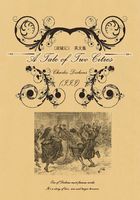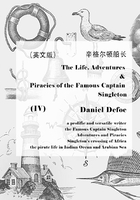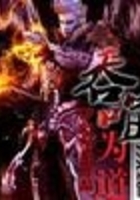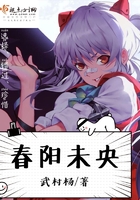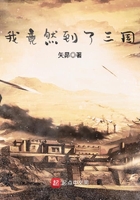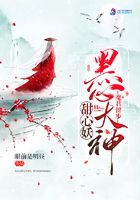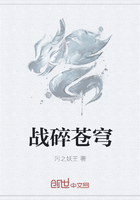SUNDAY, JANUARY 27, 1974—SOUTH CHINA SEA
Nick Thirkield once told Keifetz that being in the same family with his father and his brother Tim was like living in the back leg of an all-glass piano. It was uncomfortable, it was noisy, and everyone could watch whatever he did; not that he could do much. Nick looked grim when he said it, but he could look grim when he said Merry Christmas, because he had strong, family-based reasons against showing his teeth when he smiled.
Nick got out of the glass leg of the family piano when he went into the oil business in Asia. Sixteen years later (on the day Keifetz called) he was doing another "favor" for Pa by sweating out the job of drilling superintendent on the shakedown cruise of Pa's drilling ship Teekay 60. "There is two hundred million bucks sunk in that ship, kiddo," Pa said on the phone from Palm Springs. "Don't get any scratches on it."
Nick had been twenty-eight days checking out the equipment on the ship at the Mitsui yards at Tamano in Japan. For a week he was afraid he just wasn't going to catch on. He was really stuck and he knew it. And Pa had the kind of brass to give him a set of cuff links for neglecting his own business to take on the hideously responsible job of checking out the first satellite-controlled, deep-water oil-drilling ship ever built and never floated in all history before.
The Marine captain took charge only when the ship was in transit. Once Nick told him where to park it, Nick was handed the command. Wherever they were became just another drilling site. His head almost came to a point. When Keifetz called, Nick was finishing deep-water tests in the South China Sea, about a hundred and two miles north of Borneo. They had been testing the ship in open ocean for seventy-four days, with Nick averaging fifteen hours every day, because everything had to come out right for Pa, because that was the way Pa felt about things. There were times when he wished he had gone into vaudeville or had just let Yvette Malone rub coconut oil onto his back on some Caribbean island. The Teekay was to oil rigs what the Apollo moon wagons were to piston-engine airplanes. The Teekay's working position in heavy seas, which could be a mile and a half deep over the precise point where they would drill for oil, was fixed by signals from Pa's own navigation satellite in orbit around the earth.
When the ship's position for drilling had been fixed, all four hundred and forty feet of it slammed about by one-hundred-and-ten-foot-high waves, it had to hold that place for a month or more, without anchors, under automatic control of computers, while an oil well was drilled in the seabed six thousand feet below to a depth of twenty thousand feet. For every thrust of wind or shove of wave, eleven thruster propellers and six hydrophones were lowered through the hull in retractable turrets spread along the length of the ship's bottom, fixed at right angles to the hull, providing the required counterthrust, moving the ship sideways or swinging it on its axis.
When the ship was holding, Pa's satellite rechecked the ship's position over the oil stored under tremendous pressure six miles beneath it—more than four hundred miles beneath the satellite. When Nick was ready to drill, part of the ship's bottom slid away, and a thirty-five-foot, ninety-ton blowout-preventer stack went down through the hull, through the moonpool at the middle of the ship.
The whole ship revolved around the framework of this ninety-ton stack, so that the drill could always remain stationary whichever way the sea was running. The drill string was run down the middle of the stack to make the strike. In time an oil field would be pumping out of the seabed at a mile and a half under the ocean. Every wellhead would be piped. All the oil from every well would be run to four-hundred-and-fifty-foot-tall vertical floating spars that could hold three hundred thousand gallons of oil each and feed it into Pa's tankers while they were anchored to the spars hundreds of miles out at sea. People back home would still be able to drive to the movies in the old eight-thousand-dollar family jalopy, and sometimes get killed driving home by having to breathe the air so many cars had polluted, because Teekay was going to make a continuing supply of gasoline possible—at about triple the cost per gallon, if Pa had anything to say about it.
When Keifetz called from Brunei, two of the thrusters weren't responding, so the ship wasn't steady enough over the well. That was no good, and Nick was chewing out two computer mechanics.
Nick had two oil rigs working off Brunei. He leased the rigs from Pa. One of Pa's companies had ninety-three semisubmersible rigs out on long-term lease. Pa ran a fleet of seventy-one tankers called the Hatch Farm fleet. Now he had Teekay 60, but he insisted he wasn't in the oil business. "I got myself some exposure in there, certainly," Pa said to Nick. "Oil is money. But there's gunna be a switchover one of these days and I'm not getting stuck with a lotta iron."
The Teekay was one hundred and three miles north of Brunei when the Keifetz call came in.
"Listen, Nicholas," Keifetz said, "my crane-hoist operator on the Number Two rig just fell off the ladder."
"What the hell can I do about that?" Nick asked. "I have problems out here, fahcrissake."
"He's dying in the DeJongg Hospital."
"What am I—the chaplain?"
"He wanted to talk to me, so I went in. It's wild. Listen, Nicholas, he says he was the second rifleman when they killed your brother. He wants to tell you about it."
"Tell him to go to a health farm with a telephone and to call Horse Pickering," Nick said. "I'm going to get a call from Pa any minute now, and the electronic abacus he installed on this ship is acting like a half-wit."
"The chopper from the Teekay is here now picking up pipe valves," Keifetz said. "I'll get it right back there to bring you in."
"What the hell is the matter with you? I'm sorry about your crane operator, but he doesn't have half the troubles I have. His father is probably dead."
Keifetz said, "Nicholas, you don't think I'd get you into a flap over nothing, do you? I mean, talking loose about your brother has made about sixteen people dead."
"I'm running very important tests out here!" Nick yelled into the telephone.
"Baby, you can be back there in about three hours. How long can this guy talk? He's dying."
"Fuck him," Nick said.
"Listen, Nicholas, the people have a right to know. They're the ones who took the big screwing when it happened. I'm sending the chopper back. I think you should come in here. Make up your own mind." Keifetz hung up.
Nick knew he would have to do what the vast television audience expected of him. If your brother was President of the United States and he was assassinated, the viewers like to think you will avenge him. Or at least take an interest.
***
Nick Thirkield was a man of moderation in food, drink, and friends. He worked, as much as possible, at hard manual labor that kept him out in the sun. His brown, violet and white eyes lay like Easter eggs in a basket of squint lines. His body was as dark as a cinnamon stick. He was a blocky, strong-looking man, neither tall nor short. He had blond hair, and he wished he had the nerve to dye it any dark color. People could spot him too easily—people like Pa—unless he wore a hat. All his physical characteristics separated him still further from Pa and Tim. They were both very tall, red-haired men who walked as though they were trying to hold a bowling ball between their thighs. Pa was covered with freckles, a disgusting thing, and he had the diction of a street urchin. Nick's cinnamon tan made his teeth look neon white. They were exceptionally good teeth, but few people (his dentist, Yvette Malone and certain members of the Glee Club at Cornell) knew about that, because he refused to show them when he smiled. When he did smile he conveyed rue. He was ruing Pa's marble teeth, which looked as if they could have been ripped out of a merry-go-round horse. Pa flashed the teeth on and off as if they were traffic lights, increasing the pace when he was cheating someone, which was most of the time.
Tim had been all teeth and hair. Take away everything on Tim's face except those finger-length incisors and that half kilo of hair and everybody from Pennsylvania Avenue to the high Himalayas would still recognize him. A buffet dinner for fourteen could be served on Tim's dinner-plate front teeth, but Tim's inner life rarely had any relationship to his toothy smile. He was a politician-grinner. Nick told him, "I don't know how you and Pa can grin so much. You're both supposed to have a lot on your minds. I mean, they keep saying you're the most powerful man on earth. How can you grin all the time—maybe even when you're asleep—knowing that?" Tim answered frankly for once. He said, "Toothy smiles are an announcement. They proclaim: 'Observe my genuine equine boyishness, the charm you jes' have to trust.'"
"My mother met Hermann Goering once. She said he was the most charming man she had ever met," Nick said. "Most people who trusted that charm got their arms broken."
"That's what people's arms are for," Tim kidded. But was he kidding?
Tim had to be cynical, hard and shifty because he was a real politician. He had had a minimal education and he had never worked for a living; he had worked at getting elected. Nobody was better at that than Tim—unless it was Pa for Tim.
***
Nick worked for his own oil company, Jemnito International, of which Pa owned 18 percent of the profits. Pa had fought for 50 percent of the profits, but Nick had dug in, and they had fought it out face-to-face and by telephone for one entire winter, Nick cutting him down and down and down. Nick had finally had to sign away an equal percentage of what Pa said he would inherit in Pa's will (which was nothing but blackmail, Nick told him), but Nick didn't want a dime of Pa's money anyway (it would be like being a receiver of stolen goods, he said).
"You are a real cold-ass kid," Pa told him admiringly.
"And you are a real crooked, greedy negotiator," Nick said.
"What the hell is this? That's how it's done. You wanna win, you play to win. Start handing out breaks to the other guy and it only means you wanna lose. You don't give away millions, like you just did, to make thousands, for what you think—for about five minutes—is some fucking principle. You must be some kind of a nut or a Jesus-freak."
"Just figure it that I'm against free rides," Nick said. "For me and anybody else."
"You gotta take care of yourself, Nick. Nobody else will. Look at me. I don't know how I made it this far all in one piece. Shit, you'd think I have the best security in the world, but I'm telling you if I started to look around me at the people closest to me, I wouldn't sleep nights. Take Nolan, an army General, my roommate at Notre Dame. I made that son-of-a-bitch, just because he happened to get assigned to room with me in a jerkwater Midwestern college. But let anybody come to him from Texas with a hard-luck story and he'd cut off my balls to help him out. All right. Take Cerutti. Cerutti is not only the best research-and-development mind in the world outside of two Japs and a Swede who can't speak English, he is a full professor I bought right out of Yale, the big time. All right. He's sick. He can't stand people around him. So I made it possible that he didn't have to earn a living like every other rope-puller in the world. Sure, he's a very smart, imaginative man with the best analytic mind except three guys I couldn't communicate with. I pay that reclusive little prick two hundred and fifty thousand dollars a year to handle all investigations for me and make them come out right, and I bought him a whole fucking island to himself so he wouldn't have to look at people. So what happens? He thinks I'm just a little Mick on the make. He thinks he's superior to me. And I'm telling you this. If he did deign to talk to people, this egomaniac egghead, the first thing he would do would be to pull me down just to make himself look superior."
"Pa, for Christ's sake," Nick said. "You're seventy years old or something and you look great. Also, you're getting a more than fair salesman's commission for a couple of telephone calls, and next year that'll bring you in about four hundred thousand dollars and help your own son to get started in business besides."
"Nick—you're going to be out on oil rigs working with your hands with no shirt on, and you're going to be taking home sixty-four percent more than I get for actually bringing in the business."
"Right. Because it's my company. I'll make the company—nobody else—while I stagger around with it, paying out eighteen percent to a salesman. And that's why I don't have to wait around until they read the will on your money."
"You're a hard kid, Nick. It nearly breaks my heart."
They looked at each other right at that second and they both began to laugh. They fell about laughing together, and it was the first and last time they ever did.
Nick had a buffer against Pa and the oil business, a man named Keifetz. Keifetz wasn't as old as Pa by easily fifteen years, but he had been more of a father than Pa had ever wanted to be. Keifetz was on his side, not on Pa's or anybody else's. He was a powerful, hairy man with a comic-strip moustache like Stalin's mother's and a right hand that could maybe punch holes in the average office safe. Keifetz could hold liquor, pacify women and explain politics. That was the shaman side of him for Nick: he could explain politics to Nick the way Lionel Barrymore had been able to explain the common cold to Dr. Kildare. Nick used to think that there was the Democratic Party and the Republican Party. It had taken Keifetz a long time to explain why this wasn't so, but after that, after Nick had been able to comprehend that there was only one political party, formed by the two pretend parties wearing their labels like party hats and joining their hands in a circle around their prey, all the rest of it came much easier. Pa said Keifetz was a fucking radical. Nick felt much safer with Keifetz than he ever had with Pa.
Keifetz got 3 percent of the Jemnito profits on a ramp basis that would get him up to 7 percent if the profits kept increasing. He didn't get the percentage because he was Nick's very reliable friend. Keifetz was the best tool-pusher and all-around oil man they had in the business in South America, the Near East, Asia or anywhere else.
Nick owned all the shares in the company. He had invested two-thirds of the money his mother had left him. Pa had invested information and clout only.
Jemnito was headquartered, in an intricate tax troika arrangement that seemed to exhaust tax collectors, in the Republic of San Marino, in the Faroe Islands, and in Bhutan, but was operated out of London as an Irish-Nigerian company. It was currently producing oil off Bangladesh and in the South China Sea off Brunei. It was about to begin negotiations for the concession to prospect on the Great Barrier Reef off Queensland, Australia. All oil leases exploited by Jemnito were obtained by Pa from his many friends, who were government ministers, reigning generals, sultans, presidents and others well disposed and dispersed.
Nick liked the oil business for solid reasons. It kept him remote from his father, who had believed in thrusting the world on Tim while ignoring Nick. So Nick ignored Pa. Pa had bought immortality for Tim—a sainthood for a family that had everything. Pa got what he wanted. The other reason Nick liked the oil business was that it produced the dramatic kind of wealth his father respected. Pa found it difficult to measure men who had only three, four or even five million dollars. People who had less than that did not exist for Pa any more than plankton existed for a whale.
But no matter how hard Nick tried, Pa looked right through him. Nick told himself Pa couldn't see him because he wasn't President of the United States. It was all pretty silly stuff and it hurt. Nick answered all of it by keeping ten or fifteen thousand miles between them.
Nick's mother (who had conducted the Albany Symphony Orchestra, with Dame Maria Van Slyke as soloist, in a performance of "Rastus's Dream," Mrs. Thirkield's own composition, at a charity concert held at Palazzo Bonetti, her home and shrine near Utica, New York, where her second husband, Gabriel Thirkield, manufactured superior harmonicas) had insisted that Nick learn to play the piano really well. Nick had studied piano formally from the time he was five until he was twenty-two. When he was moved across the continent to his father's house after his mother's sudden death, Tim had told him (Nick being nine at the time and Tim almost twenty-four) that Pa considered piano playing to be "faggy," this delivered in Tim's bland, wary way from behind his remote gray eyes. The put-on was part of Tim's famous emotional detachment, which also, Nick came to see, kept him out of conflict with Pa. It was a projection of calm weakness experienced tensely. Nick finally discovered that his brother was always fearful that Pa, or the world (in that order), would catch him out in a mistake. Despite the heroic detachment, it tended to make him excessively dependent on other people.
Tim's big piano warning had the wrong effect on Nick, who concentrated with redoubled vigor on his piano studies, until Pa actually remarked how much he was beginning to enjoy listening to Nick play. As soon as he said it, Nick stopped playing on the full piano when Pa was near. He played on a silent practice keyboard. As he got older and went away to school, on the occasions when he did visit Pa he would set up the silent keyboard in his father's sight and play on it lustily. For many years he actually believed he was depriving Pa of pleasure. Later he understood that Pa probably thought that reading books was "faggy." There were books in all Pa's houses but they were placed far from where they could corrupt Pa. Pa owned paintings and sculpture, but all he appreciated about any beauty was how much it had cost him and how much he could stick the next buyer for it. Pa hardly ever drank his own wine, because that would be cutting into capital. "You don't have to read books, kid, if you can read a balance sheet," he told Nick (when he was fourteen) in a rare bit of father-and-son tenderness. Pa wasn't a Philistine, Tim explained, he was more of a barbarian. To put it one way: Pa was not one of Nick's friends, but Nick loved him.
Nick had three friends. Keith Lee, his oldest and most seldom seen friend, was the son of Pa's Chinese butler. Next came Keifetz, who had been working with Nick since Nick had rushed to the Orient in 1958, when Pa had gotten him and his mining engineer's degree an offshore job with Gulf. Last in calendar order (but first in the heart of her countryman) was Yvette Malone. Nick was in love with Yvette Malone, but just the same she was his friend. Three strong friends were a lot for a rich man to have, Tim had told him. But Tim had been like Pa, he hadn't wanted friends, just people on whom he could be dependent and who were certified to appreciate his wit and wisdom. It all worked out backward. Why not, Nick thought. By 1974 the big difference between Tim and Nick, Nick felt, was essentially that he had three friends, and Tim, although dead for fourteen years, had approximately three hundred million.
***
Nick flew off the pad on the high stern of the Teekay on a rainy night. He was the only passenger in the ship's twenty-six-seat Sikorsky S-61N that Mitsubishi had built under license for Pa (Pa having gone into Japan with his money and his specialists as a spiritual part of the treaty MacArthur had produced). It was fully amphibious, with twin stabilizing floats, and was cleared for all-weather operation. It had a 275-mile range.
The chopper had a crew of three, and ordinarily Nick would have visited with them all the way in to Brunei, but he had been telling Pa for the past seventeen days that the Teekay was as perfectly checked out as it could ever be, and still he couldn't get away to get back to his own business, because Pa now wanted him to start all the goddam tests over again for the third time. Sometimes he wasn't exactly clear on whether he was lurking around Asia with dirty fingernails in order to stay away from Pa or whether Pa was delighted to pile time on him to keep him in Asia safely out of the way. But safely out of the way of what? Or did he go through all these elaborate rituals just to bug Nick. They both knew at least three men as qualified or more qualified to ran the shakedown on the Teekay, but Pa had insisted that he do it, then do it over and over. Someday he'd have to have a long talk with Pa and try to find out who was staying out of whose way. It was a pain in the ass to belong to any family, he thought, but to be in the same family with Pa was like having an anal fistula and having to run the hundred-meter dash in the Olympics. He moped in a seat at the back of the chopper trying to figure out what he could do to get off the goddam Teekay. Maybe Keifetz would have an angle. He supposed he should get laid or something now that he would be ashore, because he would be crazy if he didn't, even if he was too goddam exhausted to get his pants off.
When they put down at the Shell airport in Brunei, Keifetz was there sweating Tiger beer. It was ten thirty at night, pouring down some hard January rain.
"Seasonal weather," Keifetz apologized. Nick realized that he had never bothered to find out Keifetz' first name. Maybe Keifetz didn't have one. He liked it the way it was, just Keifetz. Who ever called a tiger Eddie Tiger?
"Is he still alive?" Nick asked stiffly, because he had to carry out being sore at the way Keifetz had hustled him off the drill ship.
"He'll hang in until he talks to you." Keifetz wrestled Nick's suitcase away from him, waving amiably at the customs officer and speaking to him in rapid Bahasa.
The Jemnito company car was a 1965 Dodge half track. Nick sulked and Keifetz pretended he had traffic problems until they got out on the highway, then Keifetz said, "This crane operator has been with us four years, which is pretty fantastic. I signed him on first in East Pakistan. When we moved he showed up on the next job. I asked him how come. He said it was a privilege to work for Tim Kegan's brother, you dig?"
"Oh, shit."
"After he came to, he knew he was a goner, so he asked me if I could get you here and he told me why."
"Who is he?" Nick asked with irritation.
"His name is Turk Fletcher. When he signed on he even had a reference. It was a to-whom-it-may-concern letter from General Nolan—that friend of your family."
"General Nolan? James Nolan, Tim's old commanding officer?"
"That's him. You know him?"
"I never met him. He's been Pa's caretaker up at Rockrimmon, in Connecticut, almost ever since the war was over. This man's name is Turk Fletcher?"
"Yeah."
"I know most of our guys. I never heard of him."
"So he was in the cab fifty-one fucking feet over your head whenever you came aboard. Whatta you want?"
"Okay, tell me."
"He said he was Number Two rifle when they killed your brother."
"Oh, come on! You're a fanatic on this. There was no second rifle."
"Only according to the Pickering Report."
"Do you believe this guy?" Nick was incredulous.
"Let's say I believe there was a second rifle."
"Suppose there was a second rifle. What am I supposed to do about it?"
Keifetz shrugged. "Let me put it this way: the Pickering Commission didn't want to know anything about a second rifle so why should you—right?"
"Now, listen, Keifetz—"
"Every doctor on that job said there was a second rifle."
"Newspaper talk!" Nick had read more than very nearly anyone about his brother's murder, but he had known what he wanted to believe, and he had stayed in Asia most of the time after that, or in London or Paris, except for when he had the breakdown because he was taking the whole thing too big. All he knew as he stared at Keifetz was that fourteen years after everything had happened he just didn't want to hear that there had been a second rifle, because that would just stir everything up again. It could get Pa all agitated and active. He would pull Nick into some crazy vengeance scheme, and that would put an end to Nick's life without father. Talk or proof about a second rifle couldn't serve anything except to keep him away from running his own company for another three months. Tim was dead. He'd been dead for fourteen years. No big deal of another presidential commission investigation would bring Tim back to life.
"Look," Keifetz said, "how many times I gotta say it? Go ahead, Nicholas. Turn your back. What the hell do you care?"
"Are you asking me or telling me?"
"I already told you plenty of times." Keifetz had raised his voice. "Abe Weiler won a Nobel Prize for medicine, and I went to school with Abe Weiler. He is the doctor who pronounced your brother dead. I wrote to him. He answered back exactly the way he told the newspapers in the official medical report—that your brother had been hit front and rear by two different rifles. You allow the shot in the back of the head because the Pickering Commission told you to—right? Okay. The other bullet knocked on the front door."
"That's a cute expression."
"Boy, that's what this dying man, this Turk Fletcher, needs, some of your famous sarcasm."
"Willie Arnold was a Communist," Nick said irrelevantly. Not irrelevantly for him, because Pa had trained him all his life to use sentences like that, but irrelevant to the question.
"Would you believe the Hearst papers on Communists?" Keifetz asked.
"Of course."
"Okay, so I'm a Victor-ola. The Hearst papers, in 1960, the year your brother was killed, said that in assassinating the President, Willie Arnold had, quote, served the Communist cause its worst setback in forty-six years since its baneful inception, unquote. Okay, tell me something. Would you believe the late J. Edgar Hoover on Communists? In 1960 J. Edgar Hoover said—"
"Never mind, fahcrissake! I was crazy to bring it up. What do I talk politics with you all the time for? Why don't I back you into a good argument about piano techniques?"
"I'm sorry, Nicholas."
"You are so goddam self-righteous about the Joseph Alsop columns you were able to memorize."
"Still, right is right."
Nick stared at him with his Captain Bligh look. "Keifetz, this is a family affair. If the man in this hospital was part of a conspiracy that murdered my brother, I am going to find out about the rest of the people in the conspiracy."
"I hoped you'd say that. I am proud of you. I honestly am."
What have I said, Nick wondered. Is this a John Wayne movie? How could I commit myself like that? Keifetz was a dangerous mental case where Tim was concerned and Keifetz would never let him forget what he had just said. It meant, for Christ's sake, he had been manipulated again, and he would never be able to prove that he had been manipulated. Someday he was going to decide he had had enough and fire this son-of-a-bitch.

